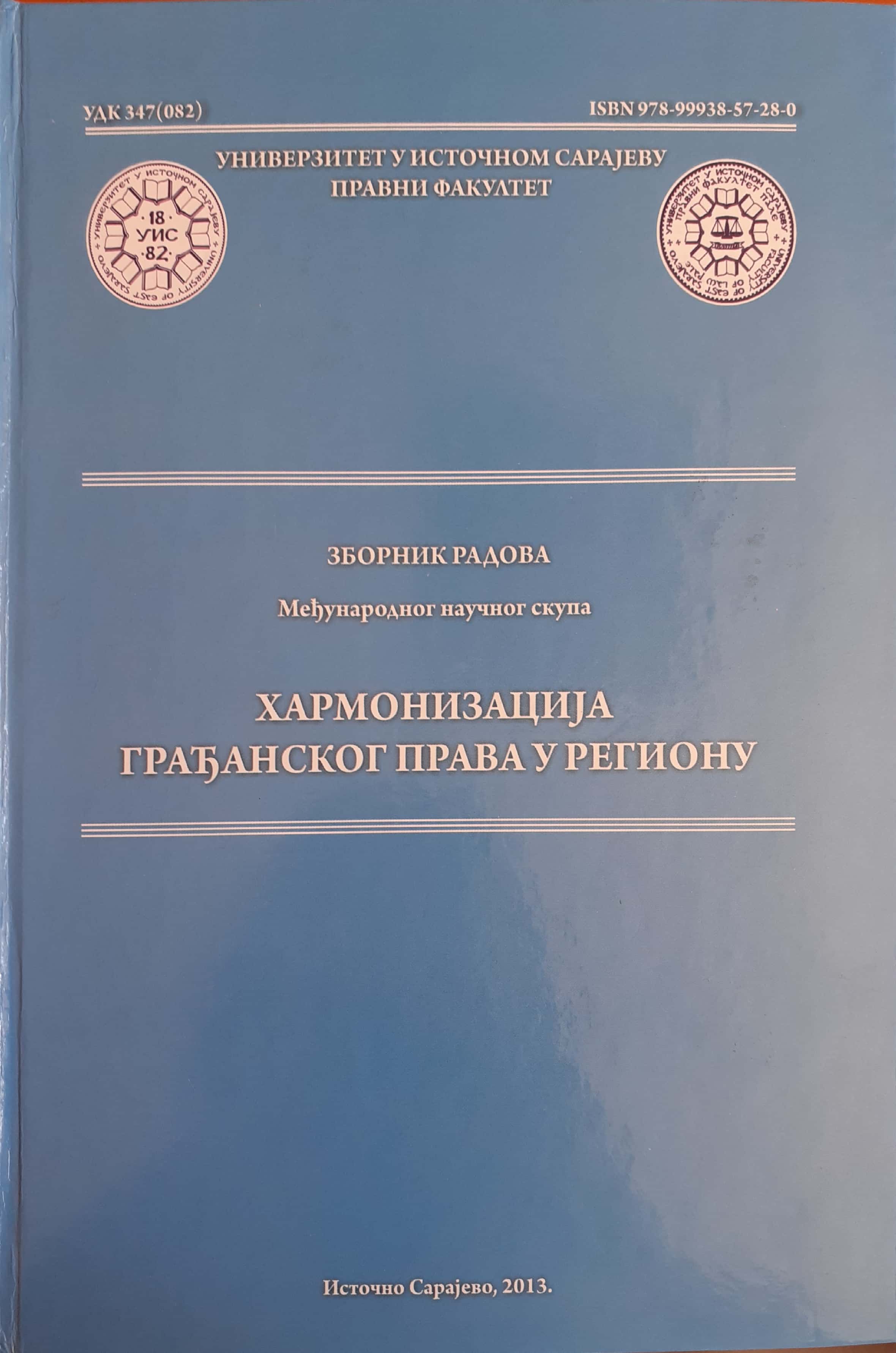Рад Комисије за унапређење грађанског поступка од 1845. године
Activity of the Commission for the Improvement of Civil Procedures in 1845.
Author(s): Uroš Stanković
Subject(s): Civil Law, 19th Century
Published by: Правни факултет Универзитета у Источном Сарајеву
Keywords: Commission for the Improvement of Civil Proceedings;History of Serbian civil proceedings;Dopunitelna pravila;Jovan Hadžić;Serbian judicary in the time of the Defenders of the Constitution;
Summary/Abstract: The article sheds light on the activity of the Commission for the Improvement of Civil Procedure, formed in the very beginning of 1845. Following the abdication of Prince Miloš Obrenović in 1839, the opportunity to restructure civil procedure on entirely new, more contemporary foundations was presented. In the process of procedure-making legislators erred to a large extent. Due to some dysfunctional provisions in terms of civil procedure, multifold multiplication of litigations was caused.Being aware of the problem, legislative power resolved to determine what principal causes provoking ever increasing number of unfinished litigations were. That task was confined to the ad hoc commission, consisting of four state counselors and renowned lawmaker Jovan Hadžić. The Commission's duty was threefold: to examine all Ministry of Justice’s circulars sent from the enactment of so-called Turkish Constitution (1838) thereon and two reports on the outlook of Serbian judiciary, one of which was drafted by Ministry of Justice, as the other was composed by the auxiliary of that very same state body.The Commission fulfilled its duty in one-month term. It nominated major factors inhibiting the activity of Serbian courts and put propositions for overcoming them. Following the acceptance of the Commission’s suggestions, the State Council had consigned to the prince a throughout act made up of thirteen articles aiming to sanitize Serbian judiciary, nine of which were promulgated in the form of provision, whereas other four appeared shaped as the prince’s ordinances.Proposed solutions had not been a success and were consequently altered by the interpretive rule sanctioned on July, 20th 1846. Howsoever, it does not diminish the value of the Commission’s work. It identified neuralgic points of civil procedure, hence alleviating latterly executed attempts to prevail the errors of prime lawgivers in Serbia.
- Page Range: 145-163
- Page Count: 19
- Publication Year: 2013
- Language: Serbian
- Content File-PDF

